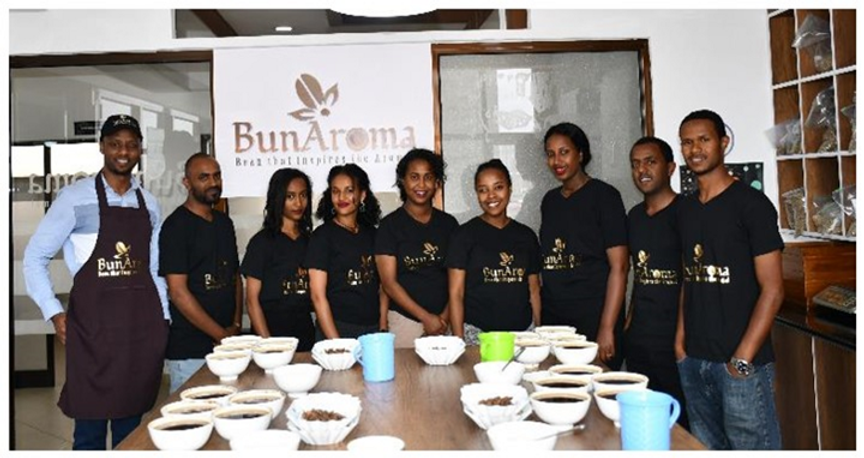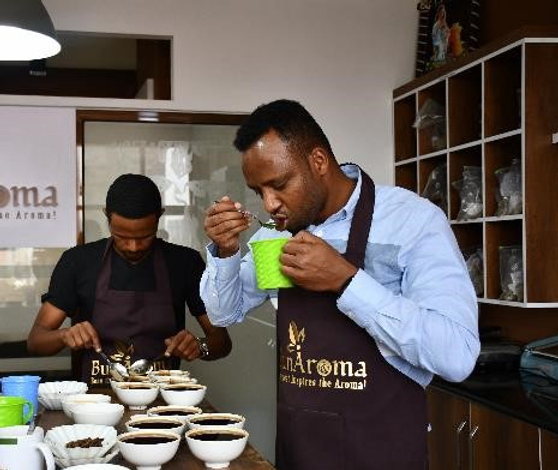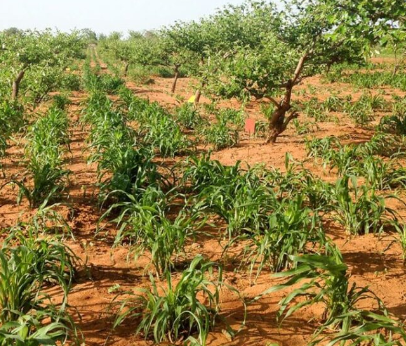USAID CATALYZE Helps SMEs in Coffee Sector Access Much-Needed Finance to Stay Competitive, Creating Jobs and Boosting Revenues

Photo Credits: USAID Catalyze
In Ethiopia, more than 45 percent of the population is under the age of 18, pointing to substantial market growth of consumers and laborers in the near future. With one of the fastest growing economies in the world and the government’s commitments to upgrading infrastructure, the country is ripe for investment. But as widespread food, fuel, and inflation crises unleashed by Russia’s war against Ukraine escalate, serious investors need to know how to manage the challenges and risks in fast-changing markets if they want to stay competitive, embrace opportunities, and advance profits.
USAID CATALYZE in Ethiopia helps investors reduce risk while supporting small- and medium-sized enterprises (SMEs) to strengthen their resilience and achieve increased sales, revenue, and employment targets. CATALYZE supports bankable transactions, linking local equity players to investment opportunities, and customizes facilitation services. For example, CATALYZE facilitated financial support to BunAroma, a specialty coffee producer and exporter, which is showing promising results. In just three months, the company secured US$ 2.1 million through CATALYZE’s technical assistance and investment facilitation support.

Photo Credits: USAID Catalyze
In Ethiopia, access to finance is a major challenge for enterprises. Despite their importance in generating employment and building the resilience of communities, not enough attention is given to expanding lending to accelerate their growth. USAID CATALYZE engages foreign investors, domestic financial institutions, and financial advisory service providers to mobilize private capital to finance high potential food security and WASH Small and Medium Enterprises (SMEs), especially those that are owned or managed by women.
When asked about his biggest challenge, Abel Ayele, Founder and CEO at BunAroma said, “Finance. The coffee business is seasonal and timely finance is critical. Starting from July, most of my time is devoted to looking for finance to cover the expenses needed to collect the coffee from the farmers and transport it to the required destination. In the Ethiopian context, either you find a private investor, raise finance through sales contracts, or you have to get a bank loan. But banks have limitations on how much they can give. Even with a sales contract guarantee, you can only get 80% as a pre-shipment loan.”
Abel joined the coffee industry in 2010 when he started working as Export & Marketing Manager for Damota Wolayta Farmers’ Cooperative Union, a union with 42 primary cooperatives serving 24,000 coffee growing farmers. After 12 years of experience in the coffee industry, his passion to work with local smallholder coffee farmers led him to establish his own company, BunAroma, with a focus on specialty coffee.

Photo Credits: USAID Catalyze
CATALYZE’s support to BunAroma started in September 2021, with validation of the company’s business plan to ensure the company meets all the requirements for a bank loan. CATALYZE held successive discussion with the President, the Vice President of Operations, and the Credit Director of Addis International Bank to structure and de-risk the loan and facilitate finance against export (pre-shipment) contracts as well as utilize the Development Finance Corporation (DFC) guarantee scheme to secure the US$2.1 million loan for working capital.
“With the first loan, we were able to resolve one of our biggest challenges — transportation cost. We invested the money into buying new truck and with the remaining consecutive loans, we were able to increase our sales volume by 30%, allowing us to hire five permanent new staff members and creating new opportunities for the youth to work at our facility.”
What makes BunAroma exceptional is its relationship with ‘Women in Coffee’ — a group of women coffee-growing farmers in Wolayta Sodo, located about 160 km from Hawassa, SNNP Region. “I know the life of the farmers and the challenges they face regularly. My company is committed to working closely with them to ensure that they produce the highest quality coffee possible. To increase the bargaining power of the cooperatives, we work with internal and external stakeholders including development actors, donors, and special interest buyers willing to promote the hard work of the women farmers. Our direct engagement with women farmers means they benefit from the company’s export revenues and corporate social responsibility activities like the provision of seed, training, and school materials. In addition, new jobs are created for the youth to work at our facility, contributing to the growth and resilience of the community.” Partnerships like these are increasing SMEs’ access to finance, which in turn increases sales and premiums for smaller businesses like the female coffee growers supplying their produce to BunAroma.
This article was originally published by USAID Catalyze.

